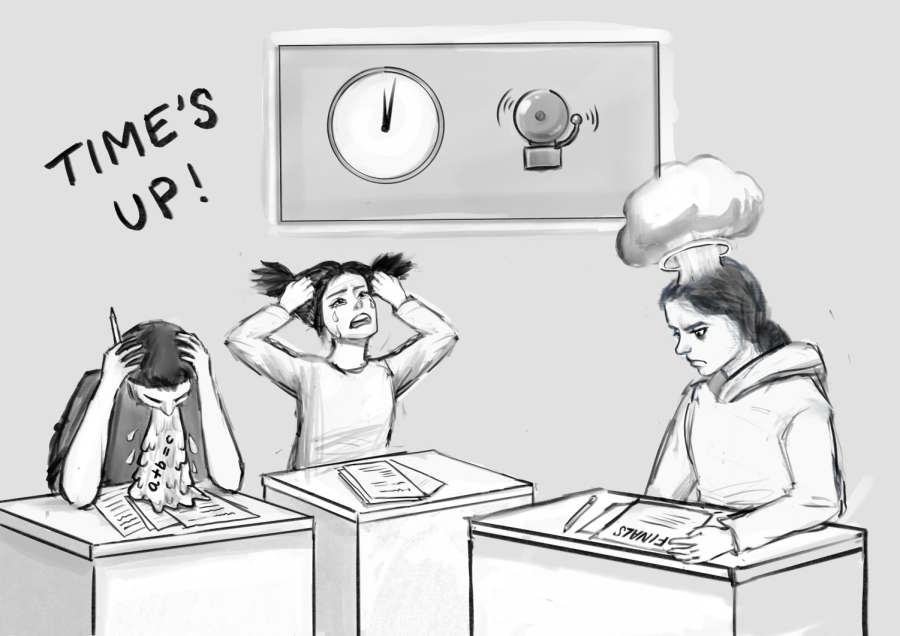Editorial: Learning is more than memorization. Finals should reflect that
December 21, 2022
We see it all around us. Students in Cocoa & Cram shovel in information they’ve forgotten months ago. Exhausted students stay up late into the night, desperately preparing to vomit surface-level information all over a future test.
If finals are supposed to represent what a student has learned over the semester, it’s clearly failing. Instead of valuing superficial, memorized information, finals should value genuine understanding and thinking skills.
Unfortunately, information regurgitation is perpetuated by Central itself in the form of “Cocoa & Cram.” This gives students a time after school to cram for their tests, starting a few weeks before finals. At those sessions, students will likely be relearning material from August through December because it is common for teachers not to supply any review until a week or two before finals.
One of the only redeeming qualities of finals week is the idea of project-based finals. Instead of relying on remembering answers from a Quizlet or guided-notes to get one through a test, students must apply the knowledge they have accumulated throughout the semester. Usually, teachers give students time in class to work on final projects, which means there is less out-of-class work since they are not cramming knowledge for the ever-stressful multiple-choice tests.
But not every class needs to have a project-based final. Better multiple-choice assessments can also offer students the opportunity to demonstrate their learning.
In other words, instead of basic recall questions, multiple-choice finals should include application-based questions. Instead of asking “what does the mitochondria do?” tests should present a scenario where students must utilize the function of the mitochondria to answer the question. By using application questions, students are more realistically measured on how their knowledge would translate from a unit in August to a test in December. Those types of questions also require students to use critical-thinking skills, which means that tests are no longer solely based on memorization, but instead, a deeper understanding of the core material.
The latter of the two solutions is to rework how finals operate at Central. Instead of requiring all students to take finals, the tests should be optional, meaning that those who want to take the final to raise their grades have the opportunity to do so. Additionally, if a student opts out of taking the assessment, their grade would not be negatively impacted. However, if a student does take the test, and they perform poorly, then their grade will be affected just as much as it would if they did well.
The purpose of optional finals is to reward students who have worked hard consistently throughout the semester and are content with their grades. Changing to this system would also encourage students to perform better throughout the semester so they can choose not to take the final.
Finals, as they are currently set up, are overly stressful and require students to relearn information just so they can regurgitate their short-term knowledge on a 100-minute test. Although Central is notorious for being overly academic-oriented, is it unrealistic to focus on mental health and understand that surface-level multiple-choice tests are a poor way of measuring student growth?








